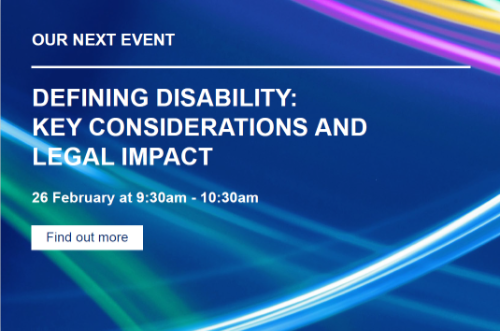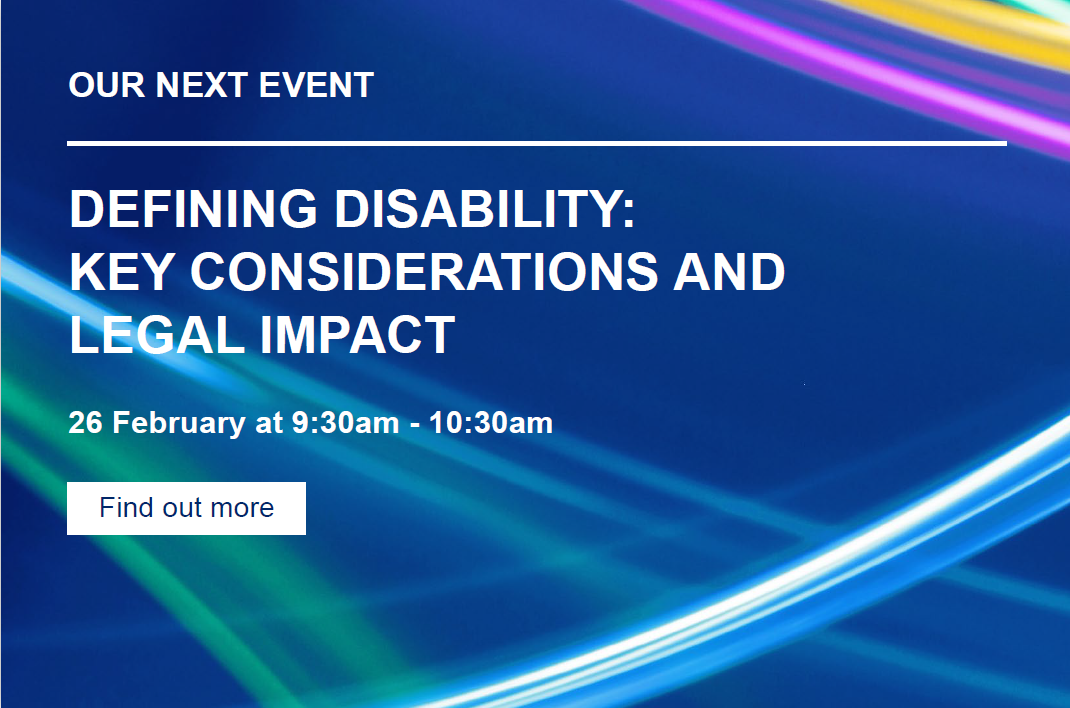New disclosure timeframes for Custodial Sentences to Employers
![]() All employers will need to urgently update their recruitment policies, writes David Leach.
All employers will need to urgently update their recruitment policies, writes David Leach.
- Details
New Changes
It has long been a question on job application forms for prospective employees and workers to declare any un-spent convictions that they have at the time of applying. However, as of 28 October 2023 the timeframe for a custodial sentence being classed as “un-spent” has been reduced. Section 193 of the Police, Crime, Sentencing and Courts Act 2022 has come into force and has made the following changes to declaring custodial convictions:
| Type of conviction | Previous length of time required to disclose | New length of time required to disclose |
| Custodial sentence of over 4 years | Never Spent | 7 years from expiry of sentence – however certain offences will never be spent (as set out in the Sentencing Code):
· Serious violent offences · Sexual offences · Terrorism offences |
| Custodial sentence of 2 ½ years to 4 years | 7 years | 4 years |
| Custodial sentence of 1 – 2 ½ years | 4 years | 4 years |
| Custodial sentence of 6 months – 1 year | 4 years | 1 year |
| Custodial sentence of up to 6 months | 2 years | 1 year |
It should be noted that with these new timeframes, if there is an instance of re-offending during the declaration period, the time periods will be extended.
A new conviction will it have its own disclosure period attached to it and both will need to be declared until the end of the original conviction’s active period or, if later, the end of the new disclosure period applied to the most recent conviction.
The above timeframes are for those over the age of 18 at time of conviction. If the offender is under the age of 18 there are altered, and in some cases lower periods of time attached to disclosure.
All employers will need to urgently update any application forms, policies and procedures to reflect the new timeframes for custodial sentences as this update applies to all convictions. This is a retrospective action and is deemed to always have been these reporting procedures[1].
These changes will not impact roles on where a basic, enhanced or enhanced with barring DBS check is required.
Opinion
It is a welcome development that job applicants will not have custodial sentences hanging over their head when looking for work for such long periods of time. This change is a push towards that people should be seen to be rehabilitated from the offences they have committed and should not suffer bias (both conscious or unconscious) when seeking work. Of course, serious offences still have long reporting periods as this reflects the seriousness of the impact it is deemed to have had on society.
With the retrospective application of these new rules, is likely to cause some confusion and nervousness for employers on making sure that if matters are disclosed that should now be classified as “spent” how they treat this disclosure, or if applications have got their disclosure wrong how this could and should be treated by a prospective employer. Further confusion could come if a DBS check highlights something accidentally.
If any employer has concerns about these new reporting timeframes, please do not hesitate to contact me (dleach@sharpepritchard.co.uk).
For further insight and resources on local government legal issues from Sharpe Pritchard, please visit the SharpeEdge page by clicking on the banner below.
This article is for general awareness only and does not constitute legal or professional advice. The law may have changed since this page was first published. If you would like further advice and assistance in relation to any issue raised in this article, please contact us by telephone or email enquiries@sharpepritchard.co.uk
|
Click here to view our archived articles or search below.
|
|
OUR RECENT ARTICLES
Jul 03, 2025
IPA guidance 2025: Managing PFI distress and preparing for expiryAanya Gujral and David Owens dive into the recent guidance published on managing the risks associated with Private Finance Initiative (“PFI”) projects.
Jul 03, 2025
Data (Use and Access) Act – Updating Data Protection Law and moreOn the 19th June 2025, the Data Use and Access Bill (“DUA Bill”) received Royal Assent to become the Data Use and Access Act 2025 (“DUA Act”).
Jun 24, 2025
Modifying subsidies: What is permitted and what is not?Beatrice Wood and Oliver Slater explore recent developments and discuss the process of awarding subsidies.
Jun 24, 2025
Getting new PPP right: Smarter tools for smarter infrastructureNicola Sumner, Steve Gummer and Roseanne Serrelli discuss the 'dos and don'ts' of Public-private Partnerships in their new form.
Jun 19, 2025
Zones/RABs and heat networks: The path to an investible infrastructure asset class?The UK’s new heat network zoning framework (the outlines for which were drawn by the Energy Act 2023) is set to redefine how low‑carbon heating is delivered by creating geographic zones, where district heat networks are the mandated, optimal solution.
Jun 17, 2025
Partial debt guarantees- Reviving Investment in UK Water InfrastructureIs it Time for a Public Sector Major Infrastructure Debt Guarantor?
|
|
ABOUT SHARPE PRITCHARD
We are a national firm of public law specialists, serving local authorities, other public sector organisations and registered social landlords, as well as commercial clients and the third sector. Our team advises on a wide range of public law matters, spanning electoral law, procurement, construction, infrastructure, data protection and information law, planning and dispute resolution, to name a few key specialisms. All public sector organisations have a route to instruct us through the various frameworks we are appointed to. To find out more about our services, please click here.
|
|
OUR NEXT EVENT
|
|
OTHER UPCOMING EVENTS
          |



